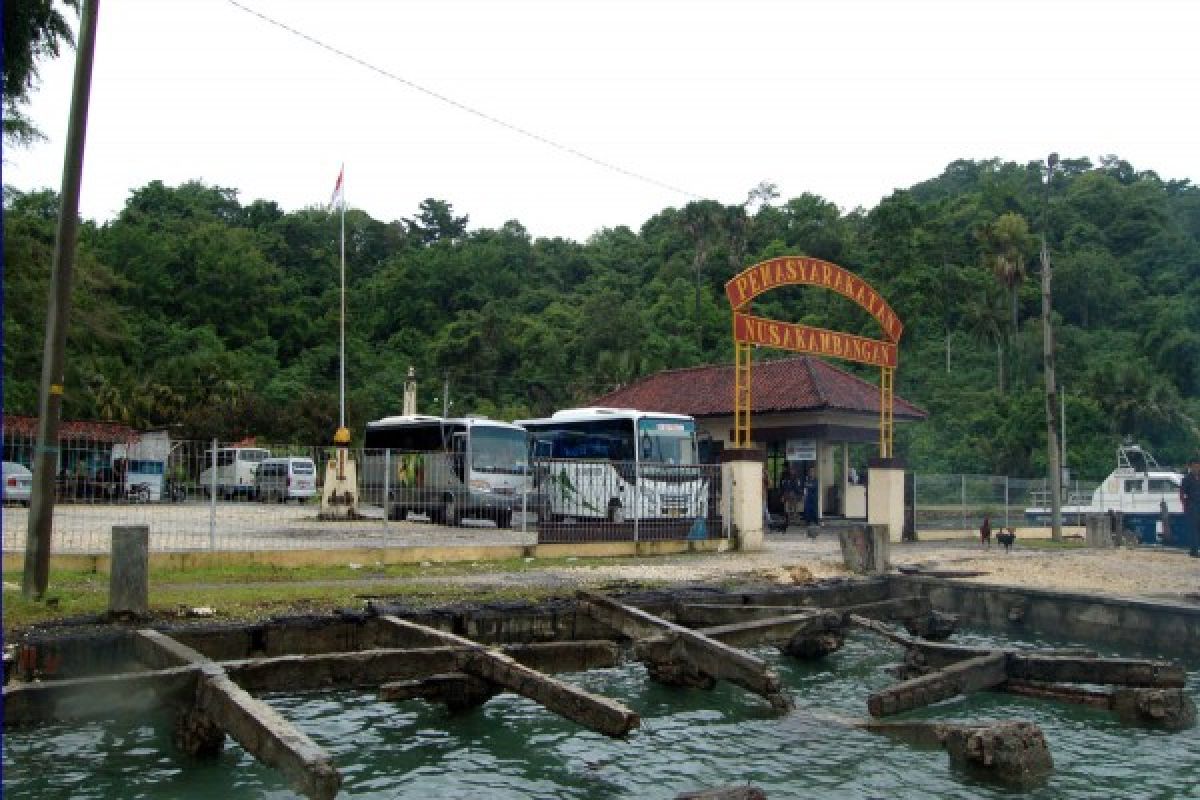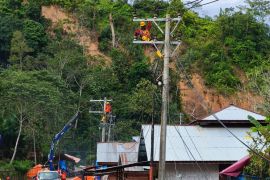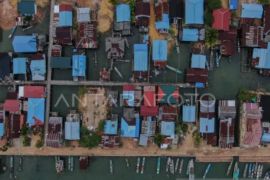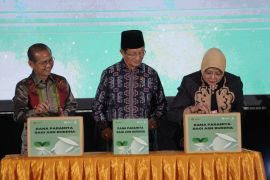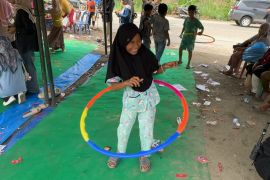"You see the preparations that we made yesterday. I have even seen the activities in Nusakambangan where arrangements are being made to carry out the executions," Prasetyo said.Jakarta (ANTARA News) - Any move to execute convicts on the death row continues to draw strong criticism since many NGOs strongly oppose and criticize such an approach.
Last year, the Indonesian government was flooded with criticisms from within the country as well as by other nations for having executed 14 drug convicts on death row.
Notwithstanding the lack of popular support, Attorney General HM Prasetyo has decided not to flinch this year, and instead indicated that the third wave of executions would be carried out soon.
"You see the preparations that we made yesterday. I have even seen the activities in Nusakambangan where arrangements are being made to carry out the executions," Prasetyo said on July 15.
Like last year, the prisoners would be brought to Nusakambangan to face executions, he said.
Nusakambangan is an island off Cilacap, southern coast of Central Java, notorious for its exile prison where hard core criminals are housed.
"The Central Java police has also tightened security. They have agreed to coordinate with us," Prasetyo said.
He declined to disclose the names of death row inmates who will be facing the firing squads, but confirmed that there would be more than two convicts, and will include Indonesian, Nigerian and Zimbabwe citizens.
The attorney general said he would later inform the embassies of the convicts concerned through the Ministry of Foreign Affairs.
Among Indonesian and foreign death row inmates in Indonesian jails are Ozias Sibanda and Fredderikk Luttar from Zimbabwe; Obina Nwajagu and Humprey Ejike from Nigeria; Seck Osmane from South Africa; Zhu Xu Xhiong, Cheng Hong Xin, Gang Chung Yi and Jian Yu Xin from China; A Yam, Jun Hao alias A Heng alias Vass Liem, Freddy Budiman, Suryanto, Agus Hadi, and Pujo Lestari from Indonesia; and Zulfikar Ali from Pakistan.
Earlier, the Attorney General said that inmate Freddy Budiman, a drug kingpin, will be among the convicts, scheduled to die in this third wave of executions.
"I will push for the execution of Budiman. Freddy Budiman is our target," Prasetyo had affirmed on May 10.
However, the Attorney Generals Office (AGO) is waiting for Budiman to seek a review of his case in the Supreme Court. The AGO will set a deadline for the same.
"Budiman said he will use his legal rights to seek a review of the case. The review should be confirmed soon, (we) cannot wait for a long time," Prasetyo remarked.
He said the move by Freddy Budiman is more of an attempt to delay his execution.
Indonesia had executed 14 drug convicts on January 18, 2015, and April 29, 2015. Among the executed convicts were a 62-year-old Dutch citizen Ang Kim Soei, 48-year-old Malawian Namaona Denis, 53-year-old Brazilian national Marco Archer Cardoso Mareira, 38-year-old Nigerian Daniel Enemua, 38-year-old Indonesian citizen Andriani alias Melisa Aprilia, and 37-year-old Vietnamese national Tran Thi Bich Hanh.
Two members of the "Bali Nine" drug ring --- Andrew Chan and Myuran Sukumaran --- were also executed in April last year.
The first and second rounds of execution of the drug convicts were carried out on the Nusakambangan Island.
President Widodo had emphasized that he would not grant clemency to drug convicts, who were responsible for the deaths of 50 Indonesians every day, despite protests from several countries and parties at home.
The Institute for Criminal Justice Reform has, however, urged the government to delay its plan to execute death row inmates, till the amended Criminal Code (KUHP) is approved.
"The image of being a strongman that President Joko Widodo (Jokowi) has earned for himself by carrying out these executions has seemingly become popular among Indonesian prosecutors and judges," Executive Director of the Institute for Criminal Justice Reform, Supriyadi Widodo, noted in a statement.
The countrys legal enforcement agencies have been competing in imposing capital punishment through courts, citing the need to have a deterrent effect, he pointed out.
However, in the current KUHP Bill being deliberated in the Parliament, it has been agreed that death penalty would be imposed only as an alternative sanction in case of special crimes.
Based on data collected by the NGO, 37 people were given death sentences by district courts in 2015.
This year, until June, the district courts had issued capital punishment verdicts to 17 defendants, mostly for major drug trafficking and premeditated murder cases.
The NGO believes that death penalty should no longer be imposed as it has failed to serve as a deterrent.
A similar view was shared by the Chairman of the Setara Institute, Hendardi, who said execution of drug convicts would not have any deterring effect and would not solve any problem.
Death sentence to a number of drug convicts is a punishment meted out on the basis of a logic of retribution, instead of serving as a correctional measure, the NGO activist said.
"The governments plan to execute more drug convicts is a pragmatic way of dealing with drug related crimes in Indonesia," Hendardi claimed.(*)
Reporter: Fardah
Editor: Heru Purwanto
Copyright © ANTARA 2016
